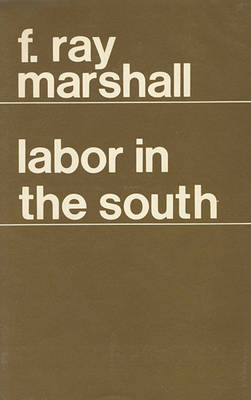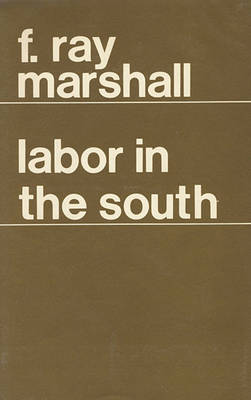
- Retrait gratuit dans votre magasin Club
- 7.000.000 titres dans notre catalogue
- Payer en toute sécurité
- Toujours un magasin près de chez vous
- Retrait gratuit dans votre magasin Club
- 7.000.000 titres dans notre catalogue
- Payer en toute sécurité
- Toujours un magasin près de chez vous
Description
In this first general history of organized labor in the south, F. Ray Marshall analyzes the main factors influencing union growth in the region from the earliest times to the present. Writing within the context of the south's political, social, and economic history, the author provides valuable material on labor economics and labor relations.
An opening section lays the foundation for the analysis by reviewing the south's unique economic and social characteristics, with a discussion of the beginnings of unions in the area and some of their activities and problems prior to 1928. The author then traces in detail the growth of key unions before 1932 and presents an evaluation of the 1930 southern organizing campaign of the AFL. An examination follows of the impact of the social ferment inspired by the New Deal. In Part IV, Marshall discusses union growth during and after the Second World War, with emphasis on the influence of the War Labor Board and other governmental agencies. Finally, in Part V he draws together all the main factors responsible for union expansion and union weakness in the south--economic forces, law and politics, union structure and philosophy, the characteristics of the workers, and social forces. In his concluding chapter the author assesses the possibilities for future union growth in the south through a projection of the trends brought to light in the previous chapters.Spécifications
Parties prenantes
- Auteur(s) :
- Editeur:
Contenu
- Nombre de pages :
- 406
- Langue:
- Anglais
- Collection :
- Tome:
- n° 124
Caractéristiques
- EAN:
- 9780674507005
- Date de parution :
- 01-01-67
- Format:
- Livre relié
- Format numérique:
- Genaaid
- Dimensions :
- 165 mm x 242 mm
- Poids :
- 725 g







